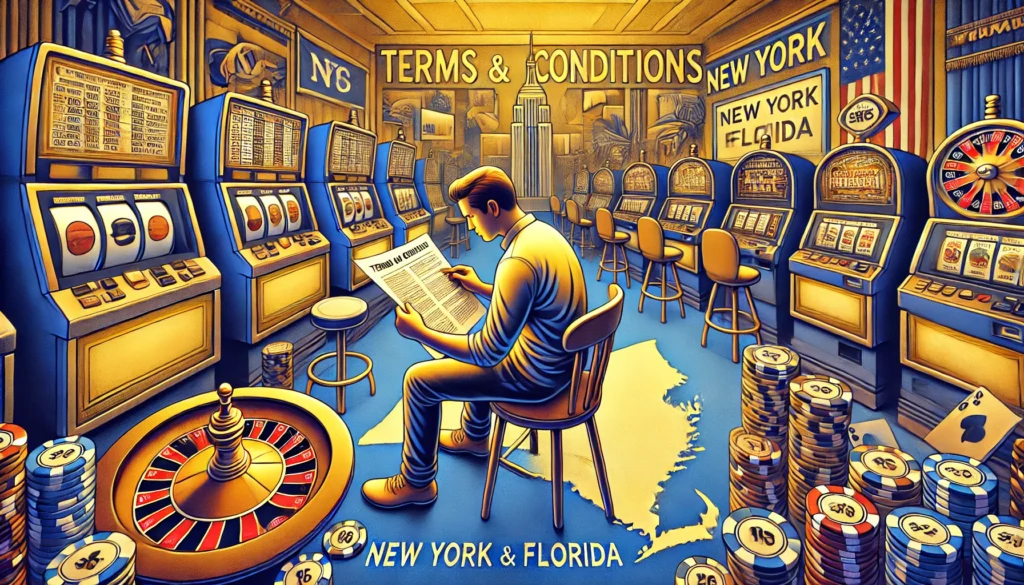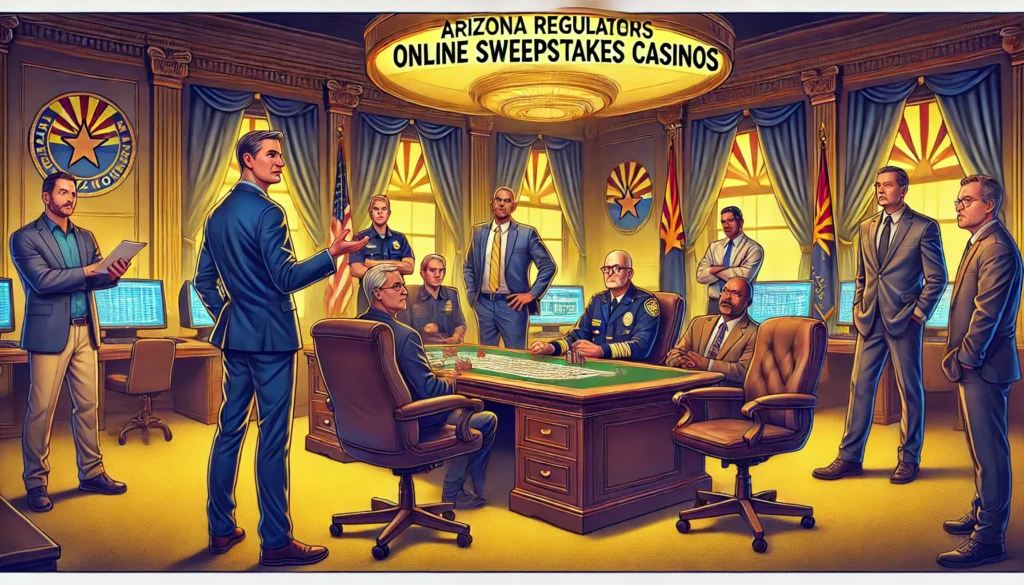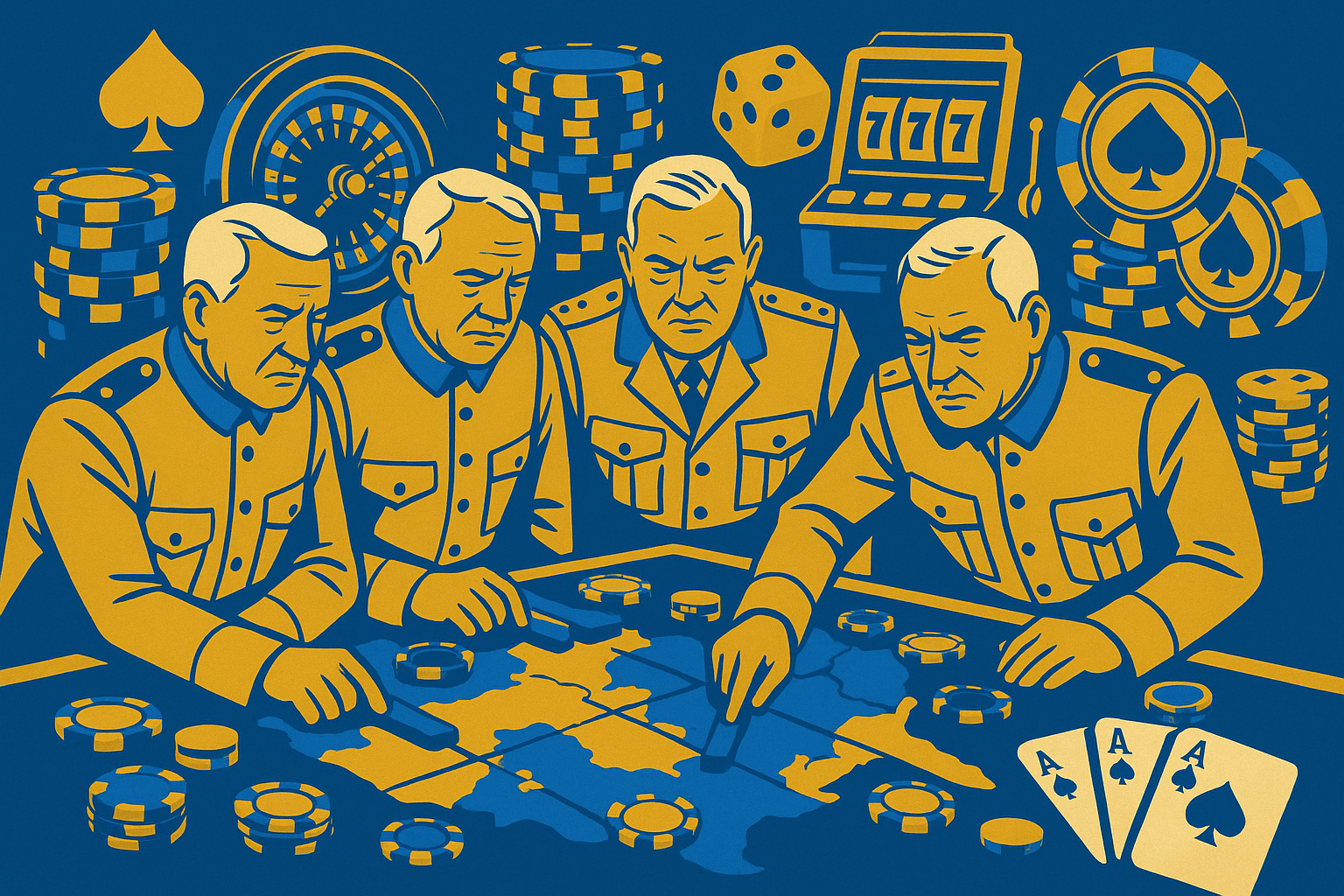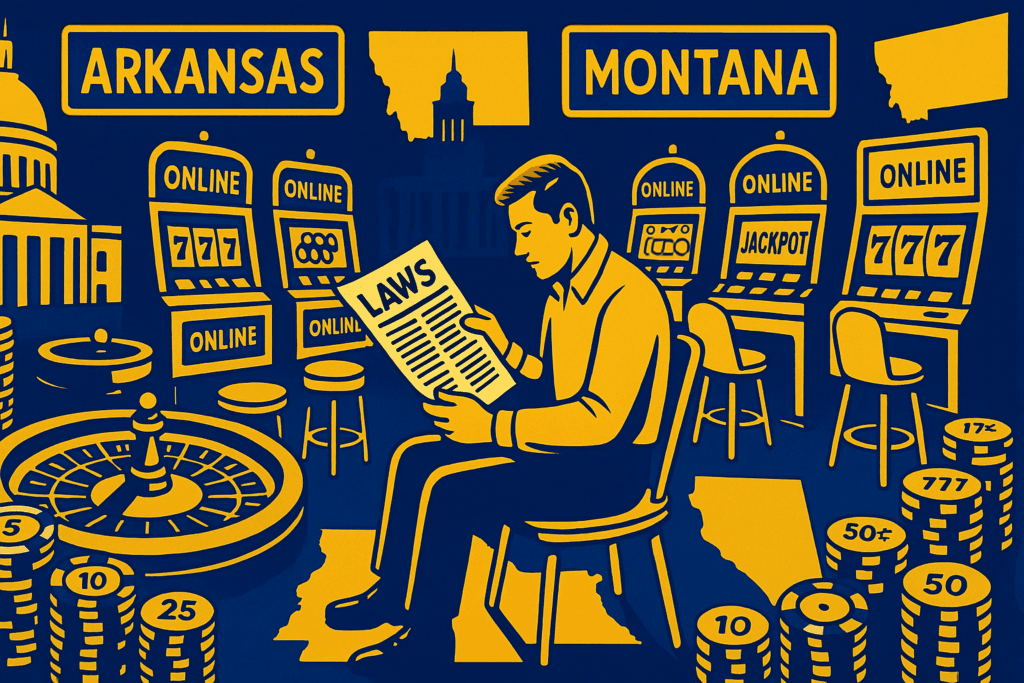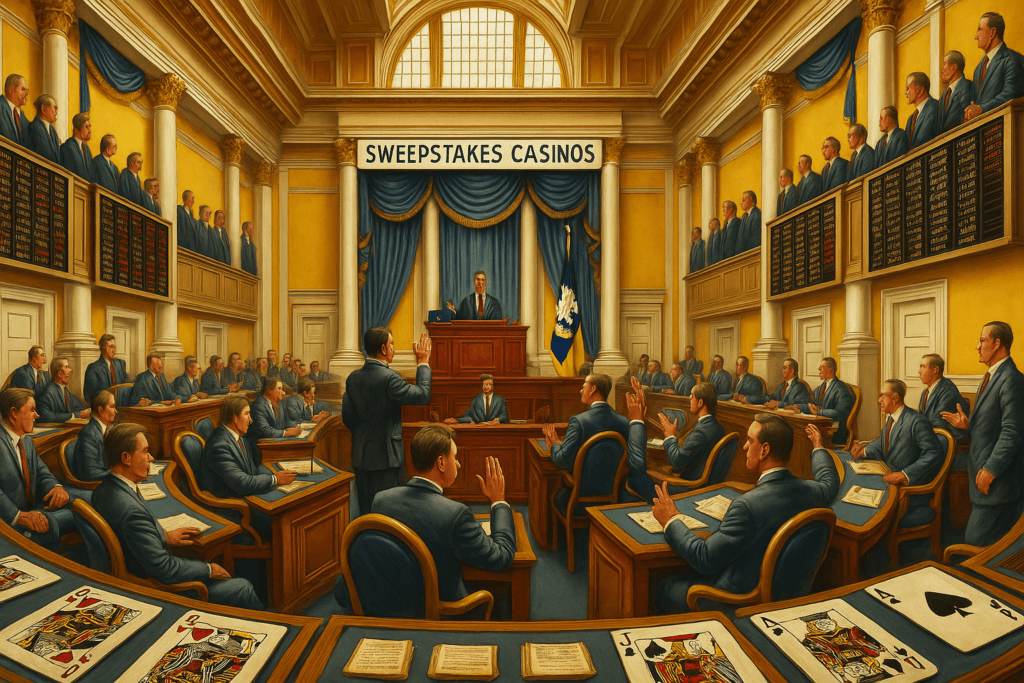Maryland recently joined a growing list of states establishing an anti-sweepstakes gaming stance in a public manner. The Maryland Lottery and Gaming Control Agency reported during its Jan. 15 meeting that it had sent cease-and-desist letters to 11 unauthorized gaming sites serving Maryland customers.
Among the recipients were six sweeps casino and/or sports betting operators, first reported by industry consultant Dustin Gouker via LinkedIn. Those operators are:
- Golden Hearts
- Zula
- McLuck
- REBET
- Fortune Coins
- StakeUS
The action removes any ambiguity that existed as to where Maryland stands on the sweepstakes operator question, and it comes just in time for renewed legislative discussions around regulating iGaming in the state.
Significance of Maryland joining the growing list of cease-and-desisters
Michigan, Connecticut, Massachusetts, Delaware, and now Maryland have all sent cease-and-desist letters to at least some sweepstakes gaming operators. All of these letters have come from the state’s authorized gaming regulator.
To date, these typically result in the targeted operators eventually pulling out of the market and adding them to their list of states they do not serve (in their terms and conditions).
Part of the reason social and sweeps gaming sites have enjoyed such unabated growth in the U.S. in the past decade is a lack of clarity on what state agency’s jurisdiction they fall under. This is true especially in states that don’t have gaming boards which regulate online casinos.
This move by Maryland’s regulator is significant as it both clarifies their position on sweeps operators in the state, and establishes the gaming regulator as the key enforcer of the state’s anti-sweeps stance.
Maryland also trying to pass regulated iGaming bill
Maryland is one of eight states so far (and counting) to introduce bills that would authorize and regulate iGaming in their state. Last year’s efforts gained a fair amount of traction and support, but couldn’t overpower key opposition from two regional casino operators, Cordish Companies and Churchill Downs, and associated employee unions.
There was also a need for ramped up educational efforts around the subject, Maryland State Senator Ron Watson later pointed out at last summer’s meeting of the National Council of Legislators from Gaming States.
Similar to last year, separate iGaming bills have been introduced in the House and Senate, by Del. Vanessa Atterbeary and Sen. Ron Watson, respectively. The bills are quite similar, with both requiring a constitutional change by voter referendum that could happen as early as 2026 if passed. They both also have requirements aimed to counter brick-and-mortar job loss fears, which dominated a number of the online casino hearings last time around.
HB 17 and SB 340 include an in-state live dealer studio requirement with a minimum of $5 million investment. They also require up to $10 million from iGaming proceeds in the first 12 months with regulated online casinos to go to the Video Lottery Facility Employee Displacement Fund to support any employees who lose jobs due to the implementation of iGaming.
Could anti-sweeps stance help Maryland pass iGaming legislation?
In addition to job-related guarantees, Maryland’s clear stance against sweepstakes operators could also help persuade regulated iGaming opponents.
One would think that the state regulator’s promise of cracking down on unregulated internet casinos would be a welcome good faith measure for the two casino companies in Maryland that opposed legislation last year.
Regardless, the rising awareness of the tax revenue that states are missing out on from sweepstakes operators in addition to discussions around a lack of regulatory oversight could work in favor of iGaming legislation going forward.
Whether the sweeps topic or any of the other assurances are enough to tip the scales in support of passing a Maryland iGaming bill this year remains to be seen with initial hearings getting underway in the coming weeks.


